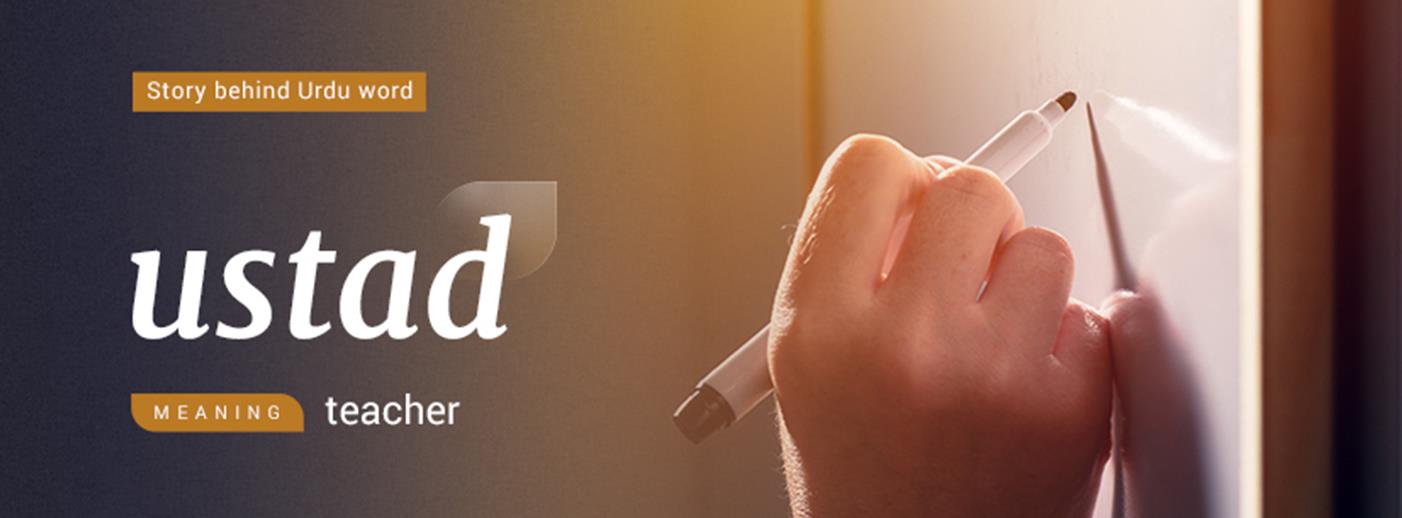Top searched
Saved words
khisyaanii billii khambaa noche
an embarrassed or ashamed person tends to vent his/her feeling by quarrelling
be-niyaaz
without want, free from want, wanting nothing, not in need, able to dispense, independent, carefree
All that you don’t know about the word Ustad, is keeping you from becoming one!

shaagird hain ham 'miir' se ustaad ke 'raasikh'
ustaado kaa ustaad hai ustaad hamaaraa
I am, Raasikh, the protégé of the masterly ‘Mir’
It is my master who’s the master of all masters
Rasikh Azimabadi
If you’ve spent hundreds of hours scouring through dictionaries, like I have, you must have noticed the label ‘vulg.’, which shows that the word you’ve arrived on has become ‘vulgarized’ or ‘corrupted’, indicating it’s no longer pronounced or written as it first was or intended to be.
And so is the case with the word featured today, Ustad. Literally meaning a master, teacher, or expert. While it has also come to be used as a close friend when addressed casually, it begs the question how can a word, which is literally the very definition of masterdom, slip up like a tenderfoot? Let’s find out.
Among the many loan-words which came into Urdu from Persian, Ustad, originally came from the Zend language, even appearing in the Zoroastrian religious text ‘Avesta’. A person who understood the Avesta text was called ‘Avesta-Ved’, meaning a knower of Avesta. Through its growing use, the word ripened into ‘Avesta-Viid’, and gradually, completely morphed into its modern-day version Ustad.
But this bit of history isn’t all, there’s more to it.
In Persian and Urdu, it came to be pronounced differently, Ustaz (with Zal) in the former, and Ustad (with dal) in the latter. While both uses are correct, its Urdu version entered the Arabic-speaking diaspora, and -surprise, surprise- underwent change again!
In Arabic, Ustad adapted to and pluralized according to the rules of Arabic grammar, spelling out as ‘Asaatiid’. In Urdu, interestingly, its Persian plural “Asaatiza” became the custom, while singularly it still remained ‘Ustad’.
Oh, and let Rasikh’s verse above be a reminder that Ustad can still pluralize and reappear as ’Ustaado.n’, as per Hindi grammar rules.
So, what did we learn today? To unlearn is as important as it is to learn. After all, even languages do so!
Delete 44 saved words?
Do you really want to delete these records? This process cannot be undone





